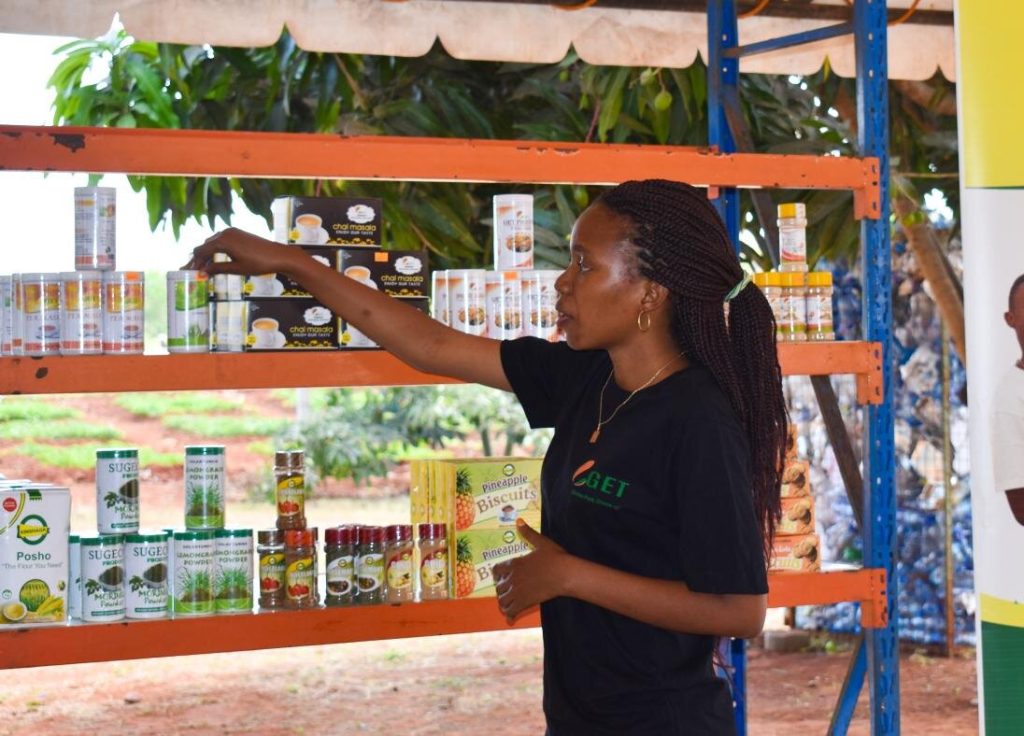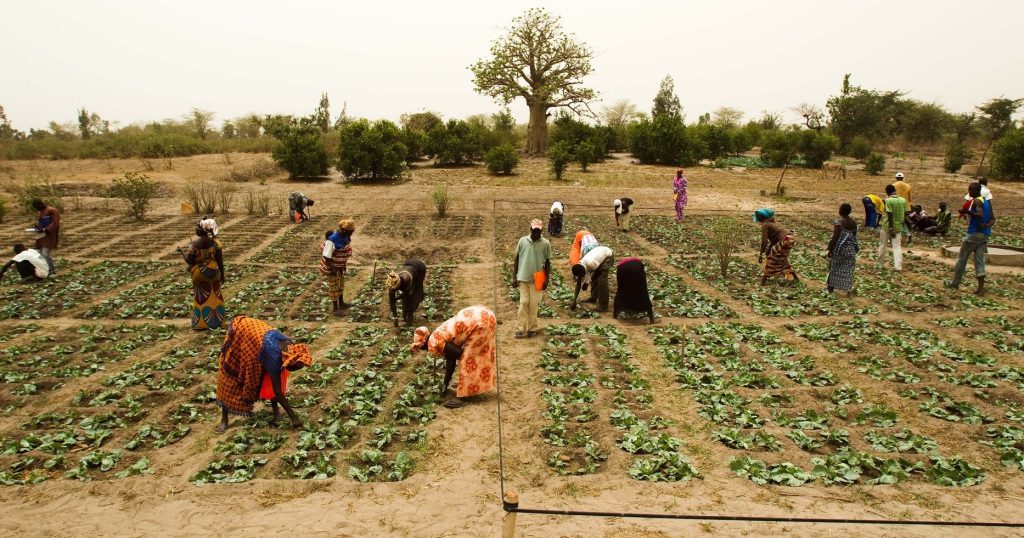The agriculture sector has played an imperative role as a critical driver for the economic growth of Tanzania since independence, hence the hypothesis, a background backbone of the Tanzanian economy. Agriculture to our economy is the spine of the human body: a central support structure that keeps humans upright and connects the different parts of our skeleton. Through agriculture, the Tanzania economy can stand out from the crowd and contribute positively to the growth of other sectors.
Approximately 65% of the population directly and indirectly depend on agriculture. The sector contributes about 28 % of the country’s GDP and about 24% of the total exports and ensures food security according to the nation’s Five Years Development Plan 3 (FYDP3, 2021). However, these facts mean that two-thirds of Tanzanians are working to produce only one-third of the country’s GDP. Being a country with one of the fastest growing youth populations in the world, with 61 percent of the population under 35, youth are expected to make agriculture the backbone of the economy. However, the youth’s perception of agriculture as the last resort for failure and the preference for white-collar jobs, coupled with limited entrepreneurial skills, poor access to land, and limited accessibility to financial services, markets, and technologies, have made the youth see agriculture as traditional subsistence farming. It’s not a business, and thus, I have shunned it.
Tanzania can maximize its agriculture potential if we can spice agriculture and make it attractive to youth, coupled with the world’s fastest-growing young population. So long as agriculture remains a cornerstone of Tanzania’s economy, it can play a vital role in the socio-economic development of Tanzania through the agriculture value chain. Working out the mismatch between the fundamental driving forces of Tanzania’s economy, youth, and agriculture is the only solution for the nation’s prosperity. However, several challenges have made this backbone of the economy lag far behind expectations.
Following the Helvetas way might attract youth to agribusiness, and thus, the country kills two birds with one stone, reducing unemployment and making agriculture contribute optimally to the economy. The Helvetas Swiss Intercooperation, Kibowavi, a Swahili short form for empowering women and youth in horticulture production and marketing, aspires to contribute towards inclusive economic growth, promote private sector development and job creation in the horticulture sector, and increase food security and nutrition in the southern highlands of Tanzania.
Implemented under Agri-Connect, a European Union (EU) funded program, the Helvetas Kibowavi project has so far attained one of the significant milestones by establishing – farm value addition facilities through the construction of two food processing industries, storage, and market parks in Mbeya and Mpanda which together with nine solar driers, two storage facilities for onion and cardamom and four marketing facilities have turned agriculture into the eye-catching business for youth. This is where youth were attracted to the agricultural value of China.
From College to Cardamom Exporter: Fatuma Mbaga’s Inspiring Journey
One of the shining and growing stars in the agriculture food chain is Fatuma Mbaga, who, at the tender age of 27, is defying all odds and standing tall to prove that the loge-held negative perception of agriculture is a misleading fairy tale. From the humble beginning of 70,000 shillings in cash and a loan facility of 50,000 shillings, she managed to forge her way to being an exporter of cardamom to the USA in a short span of 5 years, thanks to a brilliant and lionhearted captainship in her that was spotted and supported Kibowavi project.
I bumped into her during the official inauguration of the Mbeya Food Park. This agribusiness-like incubator is playing an imperative role in developing the technology and value chains that allow youth and women in small agricultural businesses to thrive in southern highlands regions of Mbeya, Songwe, and Katavi, by the Vice President of the United Republic of Tanzania, His Excellence Dr. Philip Mpango late July, this year. I briefly heard how she notched up her first cardamom export while explaining their challenges to the guest of honor while touring the exhibition show. After the opening ceremony, I decided to look for her because her story was too good to show how I heard it.

After a little struggle, I faced a young, brave, and confident Managing Director of Get Aroma Spices in her Mbeya Food Park premises office. The Mzumbe University graduate in Business Administration and Entrepreneurship says the road to where he is was not a rose without thorns.
“I started small businesses when I was still at college; I was supplying rice to a certain school in Dodoma through a main supplier; the money was paid through her account, the business was doing fine until he ran with my capital, and was back to square one,” she says.
At that time, while on holiday, she always made spices and took them back to college as gifts to her friends; when she shared with them how she lost her business and capital, they advised her to start selling the spices as they were as good as the ones they buy in supermarkets.
She followed the advice, and for the first time, she made 10 kilograms of spices worth 70,000 shillings and took them to Sokoine University Graduate Entrepreneurship Cooperative (SUGECO) exhibitions.
“I sold them all and got 300,000 shillings. I was really over the moon; after finishing college, I joined SUGECO for training in entrepreneurship, business ecosystem, and network development,” she explains and adds that she officially started the spices business.
During the World Food Day commemoration in Njombe in 2021, she met Helvetas Tanzania, part of a network of independent development organizations, promoting improvement of primary education and skills development, access to quality services and inclusive economic growth, and good governance to encourage local development, and introduced her to Kibowavi project.
“Kibowavi exposed my business to Mbeya Food Park, this open horizon on my business, at here can process quality products as opposed to a former procedure where processing had many hygienic and quality challenges,” says Fatuma.
Mbeya Food Processing Park (MFPP) is a strategic project conceived and financed by the Mbeya City Council and HELVETAS Tanzania under the KIBOWAVI project. It addresses the problem of insufficient value addition to Tanzanian horticultural products by equipping s all scale processors in Mbeya with the necessary processing and marketing capacity. It significantly enhances the targeted processors’ incomes and stimulates the overall regional economy across the horticultural value chain.
She says through quality processing at Mbeya Food Park; she managed to win a market to supply cardamom to the USA. “On Sabasaba exhibition of 2021 in Dar es Salaam, Helvetas enabled me to meet Haki Commodities, a company which was looking for cardamom samples for their market in the USA; they had 26 samples from different processors; mine was the best out of them all, so I started exporting cardamom.”
The first consignment was 50 kilograms, and now she exports 2.5 tones of cardamom annually.” It’s a good start, and for us at Get Aroma Spices, the sky isn’t the limit; we look forward to overcoming all challenges and flying even higher.”
She cites that one of the biggest challenges is packaging materials, “They are costly, that’s why we keep pleading with the government to give special priority in unveiling this challenge as it’s an obstacle to many emerging entrepreneurs in the agriculture value chain.”

